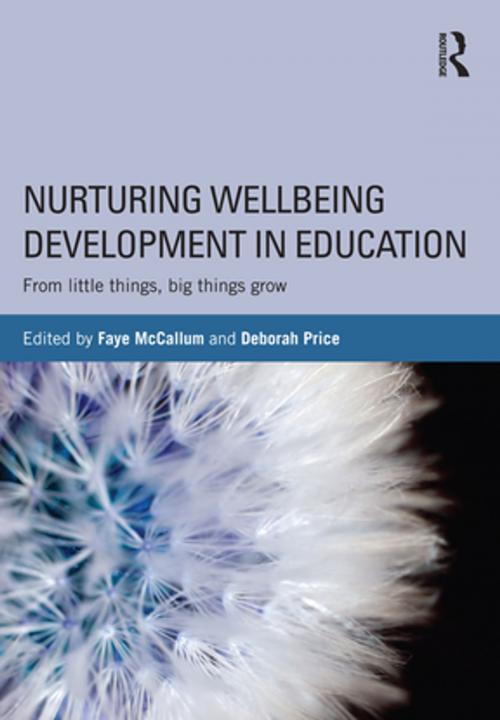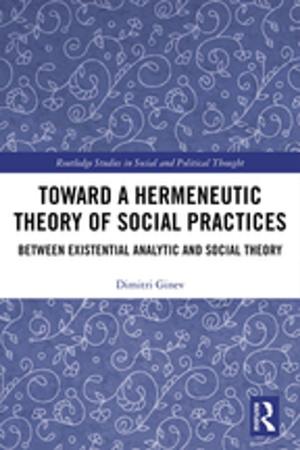Nurturing Wellbeing Development in Education
From little things, big things grow
Nonfiction, Reference & Language, Education & Teaching, Educational Theory, Leadership, Educational Psychology| Author: | ISBN: | 9781317643357 | |
| Publisher: | Taylor and Francis | Publication: | December 22, 2015 |
| Imprint: | Routledge | Language: | English |
| Author: | |
| ISBN: | 9781317643357 |
| Publisher: | Taylor and Francis |
| Publication: | December 22, 2015 |
| Imprint: | Routledge |
| Language: | English |
At the core of education, the notion of wellbeing permeates both learner and teacher wellbeing. This book explores the central role and responsibility of education in ensuring the wellbeing of children and young people. Through the employment of vignettes, proactive educational wellbeing initiatives are provided to address issues pertaining to learner and teacher wellbeing, mainstream classrooms, educational marginalisation, disabilities, cyber citizens, initial teacher education and rural education. Through employing diverging theoretical approaches of; expectancy x value theory; ecological systems theory and community practices across digital imagery; case studies; questionnaires and survey methodology, the key message of the centrality of wellbeing to educational success pervades. This book provides a critical engagement with the educational discourse of wellbeing, whilst addressing issues impacting on wellbeing with worldwide implications. It offers a unique insight into both learner and teacher wellbeing and how education can contribute to enhancing wellbeing outcomes for society in general.
At the core of education, the notion of wellbeing permeates both learner and teacher wellbeing. This book explores the central role and responsibility of education in ensuring the wellbeing of children and young people. Through the employment of vignettes, proactive educational wellbeing initiatives are provided to address issues pertaining to learner and teacher wellbeing, mainstream classrooms, educational marginalisation, disabilities, cyber citizens, initial teacher education and rural education. Through employing diverging theoretical approaches of; expectancy x value theory; ecological systems theory and community practices across digital imagery; case studies; questionnaires and survey methodology, the key message of the centrality of wellbeing to educational success pervades. This book provides a critical engagement with the educational discourse of wellbeing, whilst addressing issues impacting on wellbeing with worldwide implications. It offers a unique insight into both learner and teacher wellbeing and how education can contribute to enhancing wellbeing outcomes for society in general.















